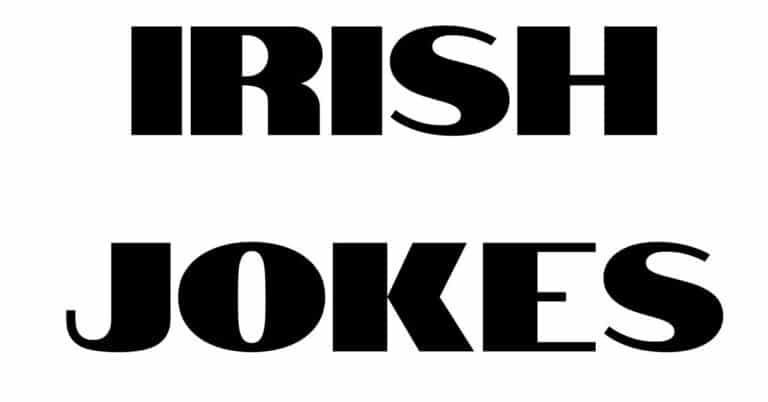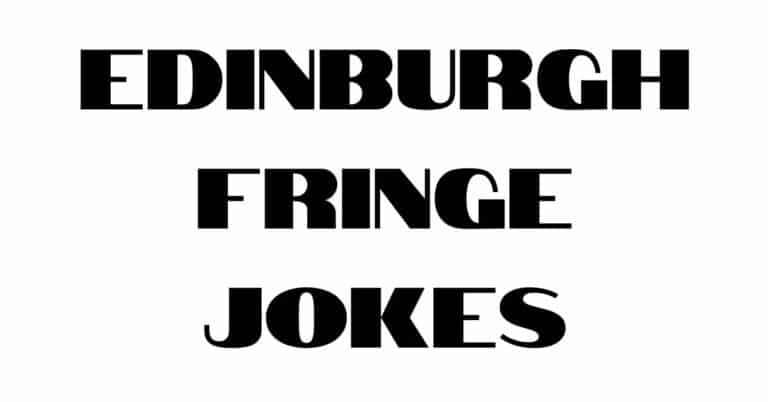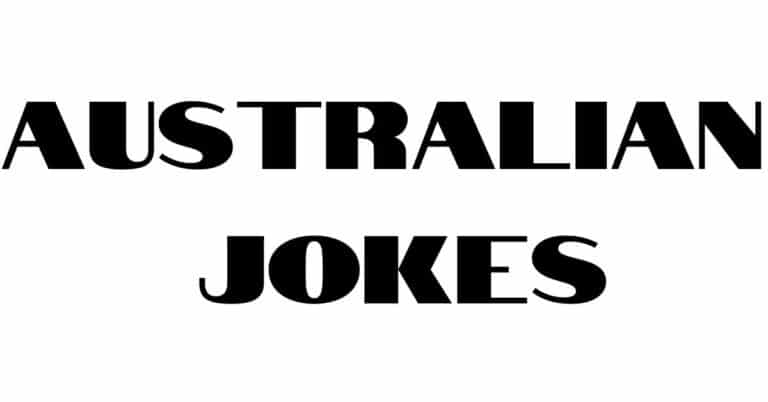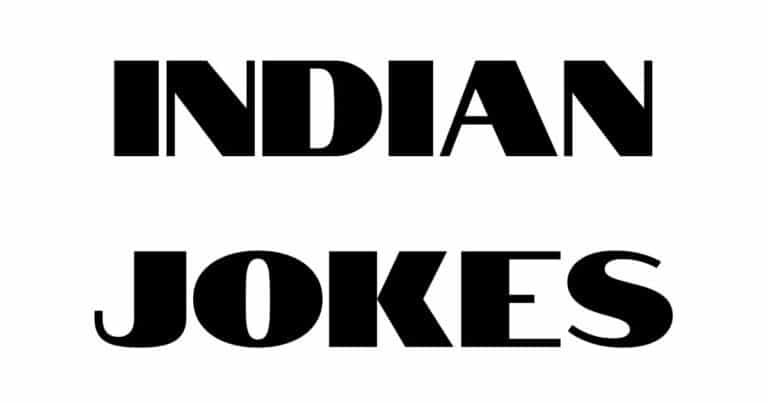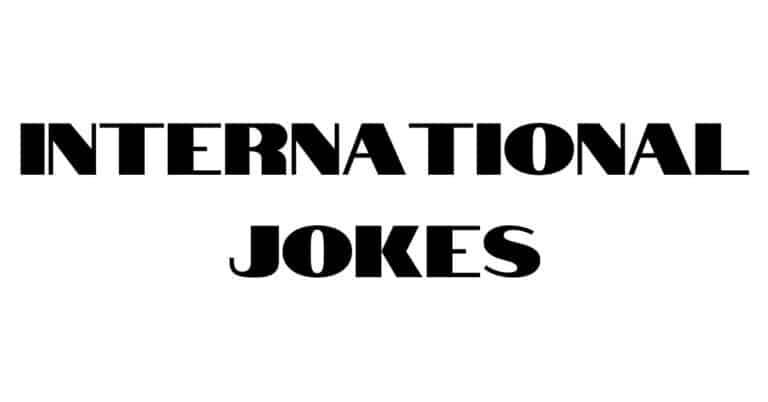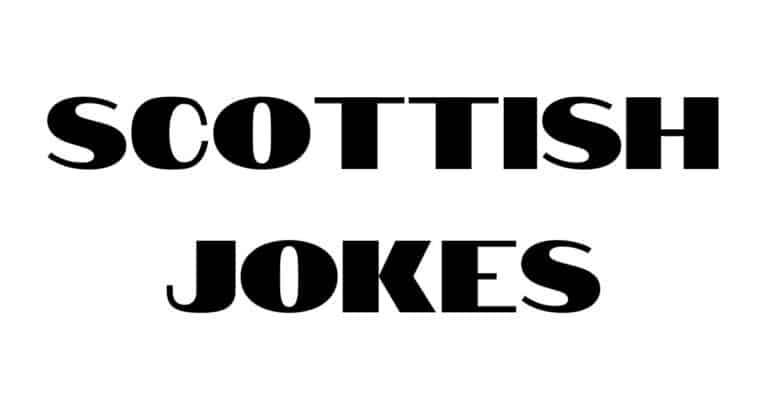

Only in England do supermarkets make sick people walk all the way to the back of the store to get their prescriptions while healthy people can buy cigarettes at the front.
Replacement Windows – A Funny English Joke
Last year I replaced all the windows in my house with that expensive casement type with shutters. Today, I got a call from the contractor who installed them. He was complaining that the work had been completed a whole year ago and I still hadn’t paid for them.
Hellloo………… Just because I have fair hair doesn’t mean that I am automatically stupid. So, I told him just what his fast-talking sales guy had told me last year, that in ONE YEAR these windows would pay for themselves!
Hello? It’s been a year! I told him. There was only silence at the other end of the line, so I finally just hung up. He never called back.
I bet he felt like an idiot.
Teacher: Paul. Give me a sentence beginning with “I”.
Paul: I is the…
Teacher: No, Paul. You must say “I am” not “I is.”
John: All right. I am the ninth letter of the alphabet.
A True English Rose – Funny English Yarn
There was a competition to cross the English Channel doing only the breaststroke, and the three women who entered the race were named Emily, Maggie, and Rose.
After approximately 14 hours, Emily staggered up on the shore and was declared the fastest. About 40 minutes later, Maggie crawled up to the shore and was declared the second-place finisher.
Nearly 4 hours after that, Rose finally came ashore and promptly collapsed in front of the worried onlookers.
When the reporters asked why it took her so long to complete the race, she replied, ‘I don’t want to sound like I’m a sore loser, but I think those two other girls were using their arms.’
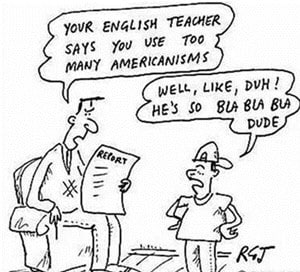
Funny English Jokes from Yorkshire
- Stanley decided to look at his friend Alf, who was a tight-fisted Yorkshireman. He found Alf at his bungalow in Huddersfield stripping the wallpaper from the dining room. Rather obviously, he remarked, “You’re decorating, I see.” To which Alf replied, “Nay Stanley lad, I’m moving ‘ouse to Bradford.”
- At an antiques auction in Leeds, England a wealthy American announced that he had lost his wallet containing £5,000, and he would give a reward of £50 to the person who found it. From the back of the hall, a Yorkshire voice shouted, “I’ll give £100!”
Growing Old in England – A Funny English Story
Someone asked the other day, ‘What was your favorite fast food when you were growing up?’
‘We didn’t have fast food when I was growing up,’ I informed him. ‘All the food was slow.’
‘C’mon, seriously. Where did you eat?’
‘It was a place called “at home,”‘ I explained. ‘Mum cooked every day and when Dad got home from work, we sat down together at the dining room table, and if I didn’t like what she put on my plate I was allowed to sit there until I did like it.’
By this time, the other person was laughing so hard I was afraid he was going to suffer serious internal damage, so I didn’t tell him the part about how I had to have permission to leave the table. But here are some other things I would have told him about my childhood if I figured his system could have handled it:
- Some parents NEVER owned their own house, never wore Levis, never set foot on a golf course, or had a credit card.
- Pizzas were not delivered to our home… But milk was.
- All newspapers were delivered by boys and all boys delivered newspapers.
- We didn’t have a television in our house until I was 19. It was, of course, black and white, and the station went off the air at midnight, after playing the national anthem.
- My parents never drove me to school. I had a bicycle that weighed probably 50 pounds and only had one speed, (slow).
- I never had a telephone in my room. The only phone was on a party line.
- Before you could dial, you had to listen and make sure some people you didn’t know weren’t already using the line.
- Movie stars kissed with their mouths shut. At least, they did in the movies.
- There were no movie ratings because all movies were responsibly produced for everyone to enjoy viewing, without profanity, violence, or anything offensive.
- If you grew up in a generation before there was fast food, you may want to share some of these memories with your children or grandchildren. Just don’t blame me if they bust a gut laughing.
- Growing up isn’t what it used to be, is it?
Memories of Old England
My Dad is cleaning out my grandmother’s house (she died in December) and he brought me an old Royal Crown Cola bottle.
In the bottle top was a stopper with a bunch of holes in it. I knew immediately what it was, but my daughter had no idea. She thought they had tried to make it a salt shaker or something. I knew it as the bottle that sat on the end of the ironing board to ‘sprinkle’ clothes with because we didn’t have steam irons. Man, I am old!
How many of these do you remember?
- Headlight dimmer switches on the floor.
- Ignition switches on the dashboard.
- Trouser leg clips for bicycles without chain guards.
- Soldering irons you heat on a gas burner.
- Using hand signals for cars without turn signals.
Older Than Dirt Quiz:
Count all the ones that you remember not the ones you were told about. Your age ratings is at the bottom.
- Candy cigarettes
- Coffee shops with tableside jukeboxes
- Home milk delivery in glass bottles
- Party lines on the telephone
- Newsreels before the movie
- TV test patterns that came on at night after the last show and were there until TV shows started again in the morning (there were only 3 channels [if you were fortunate]).
- Peashooters
- 45 RPM records
- Wash tub wringers
- Hi-fi’s
- Metal ice trays with lever
- Blue flashbulb
- Cork popguns
- Ford Zephyrs
- If you remembered 0-3 = You’re still young
- If you remembered 4-6 = You are getting older
- If you remembered 7-10 = Don’t tell your age,
- If you remembered 11-14 = You’re older than dirt!
Don’t forget to test your really OLD friends….
The Problem with Speaking English
- Japanese eat very little fat and suffer fewer heart attacks than us.
- Mexicans eat a lot of fat and suffer fewer heart attacks than us.
- Chinese drink very little red wine and suffer fewer heart attacks than us.
- Italians drink excessive amounts of red wine and suffer fewer heart attacks than us.
- Germans drink beer and eat lots of sausages and fats and suffer fewer heart attacks than us.
CONCLUSION: Eat and drink what you like. Speaking English is apparently what kills you.
Only in England
- Only in England…do we leave cars worth thousands of pounds on the drive and put our junk in the garage.
- Only in England…can a pizza get to your house faster than an ambulance.
- Only in England…do Supermarkets make sick people walk all the way to the back of the store to get their prescriptions while healthy people can buy cigarettes at the front.
Classic Englishman, Irishman, Welshman, Scotsman Joke
An Englishman, Irishman, Welshman, and Scotsman were captured while fighting in a far-off foreign land, and the leader of the captors said, ‘We’re going to line you up in front of a firing squad and shoot you all in turn. But first, you each can make a final wish.’
The Englishman responds, ‘I’d like to hear “God Save The Queen” just one more time to remind me of the auld country, played by the London All Boys Choir. With Morris Dancers Dancing to the tune.’
The Irishman replies, ‘I’d like to hear “Danny Boy” just one more time to remind me of the auld country, sung in the style of Daniel O’Donnell, with Riverdance dancers skipping gaily to the tune.’
The Welshman answers, ‘I’d like to hear “Men Of Harlech” just one more time to remind me of the country, sung as if by the Treorchy Male Voice Choir.’
The Scotsman says quickly, ‘I’d like to be shot first.’
The Best Funny Typical British Jokes
The New Zookeeper
Peter starts his new job at the London Zoo and is given three tasks. First is to clear the exotic fish pool of weeds. As he does this, a huge fish jumps out and bites him. To show who the is boss, Peter beats it to death with a spade. Realizing his employer won’t be best pleased; he disposes of the fish by feeding it to the lions, as lions will eat anything.
Moving on to the second job of clearing out the chimp house, Peter is attacked by the chimps that pelt him with coconuts. He swipes at two chimps with a spade killing them both. What can he do?
Feed them to the lions, Peter says to himself because lions eat anything. He hurls the corpses into the lion enclosure.
Peter moves on to the last job which is to collect honey from the South American Bees. As soon as he starts, he is attacked by the bees. He grabs the spade and smashes the bees to a pulp. By now he knows what to do and throws them into the lion’s cage because lions eat anything.
Later that day a new lion arrives at the zoo. He wanders up to another lion and says, ‘What’s the food like here?’
The lion replies, ‘Absolutely brilliant!….. Today we had fish and chimps with mushy bees.’
The British Abroad
Roland, an Englishman went to Spain on a fishing trip.
While there, Roland hired a Spanish guide to help him find the best fishing spots. Since Roland was learning Spanish, he asked the guide to speak to him in Spanish and to correct any mistakes in usage.
Together they were hiking on a mountain trail when a very large, purple and blue fly crossed their path. The Englishmen pointed at the insect with his fishing rod, and announced, ‘Mira el mosca.’
The guide, sensing a teaching opportunity to teach Roland, replied, ‘No, senor, “la mosca”… es feminina.’
Roland looked at him in amazement, then back at the fly, and then said, ‘Good heavens….. you must have incredibly good eyesight.’
Ingrish Joke
Devyani; Hey, I wanted to confirm one of my answers. Can you help
Anil: Sure, which one was it?
Devyani: Well, we were supposed to add a suitable preposition in the blank. The question was, ‘Bear ____ me for a while.’
Naturally, the answer was “Bear with me for a while.” This means that the speaker requests the person to be patient for a while.
Devyani, however, changed the meaning completely with her answer by writing: “Bear chased me for a while.”
On the London Underground
Two old men, Dick and Norton were sitting next to each other on the London subway [tube]. Their hearing isn’t good.
Dick mutters, ‘Is this Wembley?’
‘No,’ says Norton, ‘It’s Thursday.’
Dick answers, ‘OK then, let’s find a pub and have a drink.’
The British At School
One day, Mrs Arnold, a teacher at Green Barn Infant School, Norwich, England, was attempting to teach the names of animals to a class of 5-year-olds.
Firstly she held up a picture of a deer, and asked one boy, ‘Sammy, what is this animal?’
Sammy looked at the picture with a disheartened look on his face and responded, ‘I’m sorry Mrs Arnold, I don’t know.’
Mrs Arnold was not one to give up easily, so she then asked Sammy, ‘Well, Sammy, what does your Mummy call your Daddy?’
Sammy’s face suddenly brightened up, but then a confused look spread slowly, and he asked, ‘Mrs Arnold, is that really a pig?’
Lesson
What did Anne Boleyn’s mother say when her daughter said that she had fallen in love with Henry VIII and was going to marry him?
That man’s not worth losing your head over.
The British at University
A famous scientist, Arnold Nijmegen, was on his way to a lecture at yet another university, this one in Aberdeen, Scotland when his chauffeur offered an idea.
‘Tell you what, sir, I’ve heard your speech so many times I bet I could deliver it and give you the night off.’
‘Sounds great,’ the Nijmegen responded.
When they got to the auditorium, the scientist put on the chauffeur’s hat and settled into the back row. The chauffeur walked to the lectern and delivered the speech. Afterward, he asked if there were any questions.
‘Yes,’ said one professor. Then he launched into a highly technical question. The chauffeur, panic-stricken for a moment, quickly recovered. ‘Ah, professor now that’s an easy one,’ he replied, ‘in fact, it’s so easy, I’m going to let my chauffeur answer it.’
More Funny English Jokes – Speak Essex
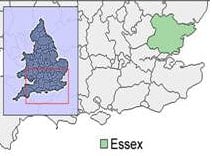
Will and Guy have created this guide for those of you who will venture into the English county known as Essex, where they have a language all of their own. This Essex is in the UK, not far from London, and the accent is not unlike Cockney, but without the rhyming slang.
We recommend that you speak each phrase or word out loud before reading the translation that we have supplied:
alma chizzit – A request to find the cost of an item: how much is it?
amant – Quantity; sum total (‘Thez a yuge amant of mud in Saffend’): amount
assband – Unable to leave the house because of illness or disability: housebound
awss – A four-legged animal, on which money is won, or more likely lost (‘That awss ya tipped cost me a fiver t’day’): horse
branna – More brown than on a previous occasion (‘Ere, Trace, ya look branna today, ‘ave you been on sunbed?’): browner
cort a panda – A rather large hamburger: quarter pounder
Dan in the maff – Unhappy (‘Wossmatta, Trace, ya look a bit Dan in the maff’): down in the mouth
eye-eels – Women’s shoes: heels
Furrock – The location of Lakeside Shopping Centre: Thurrock
garrij – A building where a car is kept or repaired(Trace: ‘Oi, Darren, I fink the motah needs at go in the garrij cos it ain working proper’): garage
Ibeefa – Balaeric holiday island: Ibiza
lafarjik – Lacking in energy (‘I feel all lafarjik’): lethargic
OI OI! – Traditional greeting. Often heard from the doorway of pubs or during banging dance tunes at clubs: hello
paipa – The Sun, The Mirror or The Sport: newspaper
reband – The period of recovery and emotional turmoil after rejection by a lover (‘I couldn’t elp it, I wuz on the reband from Craig’): rebound
Saffend – Essex coastal resort boasting the longest pleasure pier in the world. The place where the characters from TV’s, popular soap opera, Eastenders go on holiday: Southend
tan – The city of London, the big smoke: town
webbats – Querying the location something or someone is. (‘Webbats is me dole card Trace? I’ve gotta sign on in arf hour’): whereabouts
wonnid – Desired, needed or Wanted by the police:
wanted
zaggerate – To suggest that something is bigger or better than it actually is. (‘I told ya a fazzand times already’): exaggerate
How Logical is the English Language?
English is such a marvelously rich and funny language. Here are illogical, yet amusing examples of playing with English words and having fun.
Play with Words – Illogical, Yet Funny English Language
- The market garden was designed to produce produce.
- The city tip was so full that it had to refuse more refuse.
- In the boat, a row erupted amongst the oarsmen about how to row.
- The nurse wound the crepe bandage around the wound.
- Dessie decided to desert his dessert in the desert.
- Chloe was too close to the door to close it.
- When Ted saw the tear in the painting he shed a tear.
- How can I intimate my thoughts to my most intimate friend?
- Sherrie shed her shoes in the shed.
- In terms of weight, lead is in the lead.
- Since there is no time like the present, he thought it was time to present the present.
- When the stars are out they are visible, but when the lights are out, they are invisible.
- Why do our noses run but our feet smell?
- I did not object to the object.
- Freddie filled in his form by filling it out.
- Why do performers recite a play, yet play at a recital?
Two Choices – A Common Linguistic Mistake
You have two choices: stay or go, stick or twist, live or die.
Yet logically, in each instance you only have one choice. Two choices would take us into the world of the ‘second guess’.
Why is English such a Difficult, Illogical, Yet Funny Language?
These examples of the English language go some way to allowing us to understand why people from overseas make mistakes when trying to make translations on notices, posters, signs, and menus. Guy and Will invite you to enjoy these illogical, yet funny English sentences:
The bandage was wound around the wound.
The farm was used to produce produce.
The dump was so full that it had to refuse more refuse.
He could lead if he would get the lead out.
The soldier decided to desert his desert in the desert.
Since there is no time like the present, he thought it was time to present the present.
A bass was painted on the head of the bass drum.
When shot at, the dove dove into the bushes.
A seamstress and a sewer fell down into a sewer line.
The insurance was invalid for the invalid.
There was a row among the oarsmen about how to row.
They were too close to the door to close it.
The buck does funny things when they are present.
To help with planting, the farmer taught his sow to sow.
The wind was too strong to wind the sail.
After a number of injections, my jaw got a number.
Upon seeing the tear in the painting I shed a tear.
I had to subject the subject to a series of tests.
How can I intimate this to my most intimate friend?
Ten of the Best Palindromes
Palindromes are interesting because they read the same forwards and backward. While phrases are common, complete sentences are rare. The first palindrome that I saw was: Madam, I’m Adam, then I saw the longer: Madam, in Eden I’m Adam. Since then Will and Guy have put together ten of the best palindromes:
- Live not on evil
- Rise to vote, sir!
- Do geese see God?
- Lisa Bonet ate no basil
- Dennis and Edna sinned
- Murder for a jar of red rum
- A man, a plan, a canal, Panama!
- No, it never propagates if I set a gap or prevention
- Tim made us sign it ‘Lover’-a revolting issue, dammit!
- Doc note: I dissent. A fast never prevents fatness. I diet on cod.
What’s In The Meaning
Will and Guy Think:
- If lawyers are disbarred, and clergymen defrocked, does it not follow that electricians can be delighted, musicians denoted, cowboys deranged, models deposed, or drycleaners depressed?
- Laundry workers could decrease, eventually becoming depressed and depleted.
- Even more, bedmakers could be debunked, baseball players debased, landscapers deflowered, software engineers detested, underwear manufacturers debriefed, and even musical composers will eventually decompose.
On a different note though, perhaps we can hope that some politicians will be devoted.
Sweating Like a Pig
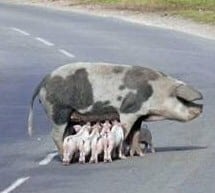
The phrase “sweating like a pig” actually has nothing to do with the animal that you might find on a farm. Instead, it refers to iron “sows” and “piglets” made when smelting pig iron. In traditional iron smelting, liquid iron is poured into a mold shaped like one long line with many smaller lines branching off of it at right angles.
This looks similar to piglets feeding from their mother, so these pieces became known as pigs. After the pigs are poured into the sand, they cool, causing the surrounding air to reach its dew point and turn into moisture on the pigs like they are sweating. When the pig is sweating, it’s cool enough to be moved.
Funny English Language – More Examples
There is probably a posh name for this clever crafting of the English language, but to Will and Guy these examples are just to be enjoyed without deep analysis, we hope that you feel the same.
- A mate of mine recently admitted to being addicted to brake fluid. When I warned him about it, he reckoned he could stop any time…..
- I went to the cemetery to lay flowers on a grave. I noticed four grave diggers walking about with a coffin. Three hours later, they were still walking about with it. I thought to myself, ‘They’ve lost the plot.’
- At a cash point yesterday, a little old lady asked me to check her balance. Not being one to disappoint, I pushed the old dear over.
- My son’s been asking for a pet spider for his birthday, so I went to our pet shop and they were £70 each. I can get one cheaper off the web.
- Statistically, six out of seven dwarves are not happy.
- Just heard there’s been an explosion at a pie factory in Huddersfield; 3.1415927 dead.
- Went to a friend’s house today. His wife was there with their newborn baby. She asked if I’d like to wind it. I thought that was a bit cruel, so I gave it a dead leg instead.
- I start a new job in Seoul next week. I thought it was a good Korea move.
- I got some new aftershave today that smells like breadcrumbs. The birds love it.
- I was driving this morning when I saw an RAC van parked up. The driver was sobbing uncontrollably and looked very miserable. I thought to Myself, ‘That guy’s heading for a breakdown.’
English Is CUH-RAY-ZEE
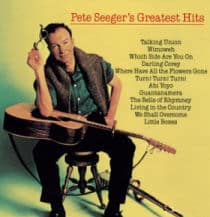
Words by Josh White, Jr. and Pete Seeger. Sung by Pete Seeger
English is the most widely spoken language in the history of the planet. One out of every seven human beings can speak or read it. Half the world’s books and 3/4 of the international mail are in English. It has the largest vocabulary, perhaps two million words, And a noble body of literature. But face it: English is cuh-ray-zee!
Just a few examples: There’s no egg in eggplant, no pine or apple in pineapple. Quicksand works slowly; boxing rings are square. A writer writes, but do fingers find? Hammers don’t ham, grocers don’t groce. Haberdashers don’t haberdash. English is cuh-ray-zee!
If the plural of tooth is teeth, shouldn’t the plural of booth be beeth? It’s one goose, two geese. Why not one moose, two meese? If it’s one index, two indices; why not one Kleenex, two Kleenices? English is cuh-ray-zee!
You can comb through the annals of history, but not just one annual. You can make amends, but not just one amend.
If you have a bunch of odds and ends and get rid of all but one, is it an odd or an end? If the teacher taught, why isn’t it true that a preacher praught? If you wrote a letter, did you also bote your tongue? And if a vegetarian eats vegetables, what does a humanitarian eat? English is cuh-ray-zee!
Why is it that night falls but never breaks and day breaks but never falls? In what other language do people drive on the parkway and park on the driveway? Ship by truck but send cargo by ship? Recite at a play but play at a recital? Have noses that run and feet that smell? English is cuh-ray-zee!
How can a slim chance and a fat chance be the same, When a wise man and a wise guy are very different? To overlook something and to oversee something are very different, But quite a lot and quite a few are the same. How can the weather be hot as hell one day and cold as hell the next? English is cuh-ray-zee!
You have to marvel at the lunacy of a language in which your house can burn down, While it is burning up. You fill out a form by filling it in. In which your alarm clock goes off by going on. If pro is the opposite of con, what is the opposite of progress?
Well, English was invented by people, not computers, And reflects the creativity of the human race. So that’s why when the stars are out, they’re visible, But when the lights are out, they’re invisible. When I wind up my watch I start it, but when I wind up this rap, I end it. English is cuh-ray-zee!
The English Language’s Most Terrifying Words
The nine most terrifying words in the English language are, ‘I’m from the government and I’m here to help.’ Ronald Reagan
Three ripostes to the above words.
We need a president who’s fluent in at least one language. Buck Henry
None are so busy as the fool and knave. John Dryden
Americans adore me and will go on adoring me until I say something nice about them. George Bernard Shaw
Shott or Not?
A duel was fought between Alexander Shott and John Nott. Nott was shot and Shott was not. In this case, it is better to be Shott than Nott. Some said that Nott was not shot. But Shott says that he shot Nott. It may be that the shot Shott shot, shot Nott, or it may be possible that the shot Shott shot, shot Shott himself. We think, however, that the shot Shott shot, shot not Shott, but Nott. Anyway, it is hard to tell which was shot and which was not.
Americanisms Which Seem Illogical to We British
- That will teach you … – Don’t they teach pupils anything in American schools?
- A Regular Cappuccino. – I would not want an irregular coffee.
- Alternate Thanksgiving Turkeys. – Do they oscillate? Or is it a reserve, or an alternative?
- Deplane man. – Ambiguous. Is this an American from the south of the country pointing out an airplane? Or a male getting off a plane?
- Bi-weekly magazine. – Is this an American phrase for the opposite of a free magazine? Or could it indicate a new periodical genre? I note they are always published every fortnight, that could be a clue!
Ten Meaningless or Irritating English Expressions
- At the end of the day
- At this moment in time
- I personally
- With all due respect
- Absolutely
- It’s a nightmare
- Fairly unique
- Shouldn’t of
- 24/7
- It’s not rocket science
Funny English Words – Quirky English Language
Funny English Words with Quirky Logic
- There is no egg in eggplant, nor ham in hamburger.
- Have you noticed that there is neither apple nor pine in pineapple?
- A guinea pig is neither from Guinea nor is it a pig.
- And there are no hogs in Hogmanay.
- And why is it that writers write but fingers don’t fing, grocers don’t groce and hammers don’t ham?
- You cannot buy boots in Boots nor virgins in Virgin. You cannot buy threshers in Threshers and the Superdrug chain is a big disappointment.
- Quicksand only works slowly
- If the plural of tooth is teeth, why isn’t the plural of booth beeth?
- One goose, 2 geese. So one moose, 2 meese?
- If teachers taught, why didn’t preachers praught?
- If a vegetarian eats vegetables, what does a humanitarian eat?
- A pregnant goldfish is called a twit.
More Funny English Words
If you stop and think about certain English words, you cannot help wondering about the quirky logic of their derivation.
- There is no parlor in Parlous. (Parlous – dangerous, hazardous)
- Sweetmeats are sweets while sweetbreads, which aren’t sweet, are meat.
- When you are incommunicado: you are without the means to communicate.
The Problem with Speaking English
- Japanese eat very little fat and suffer fewer heart attacks than us.
- Mexicans eat a lot of fat and suffer fewer heart attacks than us.
- Chinese drink very little red wine and suffer fewer heart attacks than us.
- Italians drink excessive amounts of red wine and suffer fewer heart attacks than us.
- Germans drink beer and eat lots of sausages and fats and suffer fewer heart attacks than us.
CONCLUSION: Eat and drink what you like. Speaking English is apparently what kills you.
Outtakes of Funny English Words
Following a query from Moray, further research by Will indicates these statements may not tell the whole truth.
- French fries do not originate in France.
Fries may well have originated in 19th-century France. However, as with so many “inventions” / “discoveries,” others make claims as well. Belgium has been mentioned in this regard. Between the wars, the Americans began to eat fried potatoes and for some reason referred to them as French fries. Will the truth ever be known?
- English muffins weren’t invented in England.
As for English muffins: it appears that in the USA muffins are known as ‘English’ muffins. Incidentally, Guy wonders if this naming phenomenon is more widespread because in Wales we have what English speakers call ‘Welsh cakes’, but indigenous old-timers call them ‘Round cakes’.
Back to the English muffins, I refer you to this excerpt from Wikipedia: An old English nursery rhyme, “The Muffin Man”, describes a door-to-door purveyor of muffins. The rhyme was known at the time of Jane Austen in the early 19th century, and a muffin man is mentioned at one point in her novel Persuasion. The muffins sold at this period were made of yeasted dough and baked on a hot griddle.
The etymology of the name is from moofin first used in 1703, derived from the Low German Muffen, the plural of Muffe meaning a small cake, or possibly with some connection to the Old French moufflet meaning soft as said of
bread. Muffins may well originate as far back as the 10th century, yet the muffin became a fashionable bread during the 18th century. By the beginning of the 19th century, there were dozens of muffin factories in existence, and the “muffin man” was a common sight.
Muffins are a quick-baking bread and have become a tea-table staple. They are usually split, toasted, buttered, and then eaten with a savory or sweet topping such as honey.
Spell Checker
Eye halve a spelling chequer. It came with my pea sea (PC). It plainly marques four my revue miss steaks eye kin knot sea.
Eye strike a key and type a word and weight four it two say weather eye am the wrong oar write. It shows me strait a weigh. As soon as a mist ache is maid it nose bee fore two long. And than eye can put the error rite.
It’s rarely ever wrong. Eye have run this let tar threw it. I am pleased two tell you its letter perfect. My checker tolled me sew.
Sauce unknown.
Words To Slip Into Conversation
It’s not that these English words are funny, it’s just that Will and I challenge you to include them in your repertoire an slip them into conversation.
- Imbue: to dye; to instill profoundly.
- Spoony: foolishly or sentimentally in love.
- Visage: the face; also, appearance; aspect.
- Sapient: wise; sage; discerning.
- Quiddity: the essence or nature of a thing.
- Exegete: one who explains or interprets difficult parts of written works.
- Sine qua non: an indispensable thing.
- Sesquipedalian: (of words) long; having many syllables.
- Predilection: an established preference.
- Grandee: a man of elevated rank or station; a nobleman.
For example:
It’s the quiddity of grandees that they have a predilection to imbue sesquipedalian words. We bet that you can do even better.
Misnomers
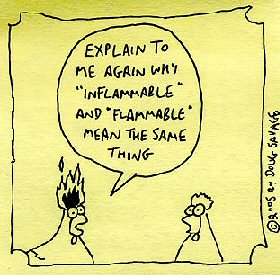
The examples of ‘Misnomers’ were reported in The Guardian newspaper in February 2006. Will and Guy
find this collection of quirky phrases both informative and amusing:
- Arabic numerals originated in India.
- Tin cans and tin foil are constructed from aluminum, not tin.
- Danish pastries were invented in Austria.
- Dry cleaning uses a fluid called naphtha.
- Pencil lead – pencils use graphite and not lead.
- The Koala bear is a marsupial and not a bear.
- Panama hats originate from Ecuador, not Panama.
- The word Asteroid means ‘star-like’ and they are small planets.
- The Turkey is native, to America and is named for its resemblance to a bird native to Africa.
- The Peanut is a legume, [i.e. fruit/vegetable] not a nut.
- The People’s Democratic Republic of Korea. [Think about it; particularly if you live there]
- Madison Square Garden, USA is not square, nor is it currently a garden. Madison Square was the location of the original Madison Square Gardens. The first one opened in 1879 in a former hippodrome located at the northeast corner of Madison Avenue and 26th Street. The second Madison Square Garden, replacing the first one in 1889, featured a concert hall, theater, and roof garden. The building had a prominent tower built after the Giralda tower in Sevilla, topped by a nude statue of the goddess Diana
English Is A Funny Language Says Expert
More Quirky English Words
Approximately 100 quirky words that mark English people out from the rest of the English-speaking world have been detailed in a new book: “Jolly Wicked Actually: The 100 Words That Make Us English, by Tony Thorne, a language expert and consultant at King’s College London, details the words that have become synonymous with the modern English language. The book details some of the best-known slang words used in the English language and speculates where they could have derived from, including “fab”, one of the few 1960s words meaning trendy; “fusspot”, meaning “anxiety” first used 300 years ago; and “naff”, which possibly derives from *NAAFI, the Navy, Army, and Air Force Institutes.
* The Navy, Army & Air Force Institutes (NAAFI) was established in 1921 and serves those who serve in the British Armed Forces and their families.
Will and Guy Select Our Top Ten Quirky Words:
- Barking: Thought to be named after the London suburb, home to a former asylum site; hence ‘Barking mad’.
- Binge: A bout of uncontrolled indulgence.
- Blighty: A word much loved by RAF types in WW2. Originally from the Hindi word “bilayati” meaning foreign.
- Blimey: Could be shorthand for “God, blind me.”
- Chum: A “chummy” used to be a chimney sweep’s assistant.
- Cuppa: First used for tea by PG Wodehouse, the playwright.
- Dear: From an old English word, “deore”, meaning “much loved.”
- Grotty: Sixties Liverpool slang.
- Jolly: From an old French word meaning “festive”.
- Slag: Derived from a 16th-century German word meaning “dross”.
UP – A Funny English Word
This two-letter word in English has more meanings than any other two-letter word, and that word is UP.’ It is
listed in the dictionary as an [adv], [prep], [adj], [n] or [v].
It’s easy to understand UP, meaning toward the sky or at the top of the list, but when we awaken in the morning, why do we wake UP?
At a meeting, why does a topic come UP? Why do we speak UP, why are the officers UP for election (if there is a tie, it is a toss-up), and why is it UP to the secretary to write UP a report? We call UP our friends, brighten UP a room, polish UP the silver, warm UP the leftovers, and clean UP the kitchen. We lock UP the house and fix UP the old car.
At other times, this little word has a really special meaning. People stir UP trouble, line UP for tickets, work UP an appetite, and think UP excuses.
To be dressed is one thing but to be dressed UP is special.
And this UP is confusing: A drain must be opened UP because it is blocked UP.
We open UP a store in the morning but we close it UP at night. We seem to be pretty mixed UP about UP!
To be knowledgeable about the proper uses of UP, look UP the word UP in the dictionary. In a desk-sized dictionary, it takes UP almost 1/4 of the page and can add UP to about thirty definitions.
If you are UP to it, you might try building UP a list of the many ways UP is used. It will take UP a lot of your time, but if you don’t give UP, you may wind UP with UP to a hundred or more.
When it threatens to rain, we say it is clouding UP. When the sun comes out, we say it is clearing UP. When it rains, the earth soaks it UP. When it does not rain for a while, things dry UP. One could go on and on, but I’ll wrap it UP, for now. My time is UP!
Oh, one more thing: What is the first thing you do in the morning and the last thing you do at night?!
Did that one crack you UP?
Don’t screw UP. Send this on to everyone you look UP in your address book. Or not; it’s UP to you.
Now I’ll shut UP!
What’s In The Meaning
Will and Guy Think:
- If lawyers are disbarred, and clergymen defrocked, does it not follow that electricians can be delighted, musicians denoted, cowboys deranged, models deposed, or drycleaners depressed?
- Laundry workers could decrease, eventually becoming depressed and depleted.
- Even more, bedmakers could be debunked, baseball players debased, landscapers deflowered, software engineers detested, underwear manufacturers debriefed, and even musical composers will eventually decompose.
On a different note though, perhaps we can hope that some politicians will be devoted.
10 Amusing Collective Nouns
- A cuddle of teddy bears
- A conjunction of grammarians
- A promise of barmen
- An obeisance of servants
- A staff of employees
- A fraid of ghosts
- A nastiness of villains
- A promise of tomorrows
- A prudence of vicars
- A clique of photographers
Funny Englishman, Irishman, Scotsman Jokes
Funny Englishman, Irishman, Scotsman Joke
A Scotsman, an Irishman, and an Englishman are each sentenced to a year in solitary confinement; before being locked away, each is to be granted a year’s supply of whatever he wants to help him get through the long, long spell alone.
- The Scotsman asks for a year’s supply of whisky; it’s given to him and he’s locked away.
- The Irishman asks for a year’s supply of Guinness so he’s locked up with several thousand bottles of it.
- The Englishman asks for a year’s supply of cigarettes and he’s given a pile of cartons and the cell door is shut on him.
One year later, the doors are all unlocked.
- The Scotsman staggers out and shouts, ‘I’m free!’ and then keels over dead from alcohol poisoning.
- The Irishman is dragged out into the light, whereupon he promptly dies of liver failure.
- When the door to the Englishman’s cell is opened, everybody watches eagerly to see what sort of a wreck the man has made of himself. To their surprise, he walks right out the door, sidles up to the first person he sees, and asks, ‘I say you wouldn’t happen to have a match, would you?’
Englishman, Scotsman, and the 3 Cookies
An Englishman and a Scotsman go to a pastry shop.
The Englishman whisks three cookies into his pocket with lightning speed. The baker doesn’t notice.
The Englishman says to the Scotsman: “You see how clever we are? You’ll never beat that!”
The Scotsman says to the Englishman: “Watch this, a Scotsman is always cleverer than an Englishman.”
He says to the baker, “Give me a cookie, I can show you a magic trick!”
The baker gives him the cookie which the Scotsman promptly eats. Then he says to the baker: “Give me another cookie for my magic trick.”
The baker is getting suspicious but he gives it to him. He eats this one too.
Then he says again: “Give me one more cookie… “
The baker is getting angry now but gives him one anyway. The Scotsman eats this one too.
Now the baker is really mad, and he yells: “And where is your famous magic trick?”
The Scotsman says: “Look in the Englishman’s pocket!”
Englishman, Irishman, and Frenchman Joke
An Englishman, a Frenchman, and an Irishman were in a pub talking about their children.
‘My son was born on St George’s Day, ‘remarked the Englishman, ‘So we obviously decided to call him George.’
‘That’s a real coincidence’, observed the Frenchman’, My daughter was born on Valentine’s Day, so we decided to call her Valentine.’
‘That’s really incredible’, drawled the Irishman, ‘Exactly the same thing happened with my son Pancake.’
A Frenchman, a German, an Irishman and an Englishman
A Frenchman, a German, an Irishman, and an Englishman are talking together after some rigorous exercise.
‘I’m so tired and thirsty,’ moaned the Frenchman, ‘I think I must have a glass of wine.’
‘I’m so tired and thirsty,’ responded the German, ‘I think I must have a beer.’
‘I’m so tired and thirsty,’ murmured the Irishman, ‘I think I must have a Guinness.’
‘I’m so tired and thirsty,’ muttered the Englishman, ‘I think I must have diabetes.’
Three Englishmen and a Welshman Tale
Three Englishmen walk into a bar and spot a Welshman sitting alone at a table.
One fellow said to the others, ‘Let’s pick a fight with that Welshman over there.’ His partner replied, ‘Wait, we don’t want to be arrested. Let’s make him start the fight.’ The third Englishman said, ‘Wait here chaps. I know how to do it.’
He went over to the Welshman and said, ‘St David was a flippin’ sissy.’ To this, the Welshman replied, ‘Ah well you don’t say!’ and calmly resumed drinking his beer.
The second Englishman now tried his luck and said to the Welshman, ‘St David was a stupid fool that wore a dress!’
The Welshman again replied, ‘You’re very sharp, you don’t say!’ and calmly resumed drinking his beer.
The last Englishman told his friends he knew how to rile the Welshman and bounced up to the table and yelled, ‘St David was an Englishman!’
The Welshman replied, calmly, ‘That’s what your mates were trying to tell me.’
Gallows Humour
An American and an Irishman were enjoying a ride in the country when they came upon an unusual sight – an old gallows.
The American thought he would have a joke at the expense of his Irish companion. ‘You see that, Shaughnessy, I reckon,’ said the American, pointing to the gallows. ‘And now where would you be if the gallows had its due?’
‘Riding alone,’ coolly replied Shaughnessy.
Some More Silly, Clean, Funny, Englishman Jokes from Will and Guy
Setting aside political correctness, some of these jokes reflect national stereotypes, while others can be modified to suit any combination of English, Irish, Scottish, or Welshmen.
Entertaining Joke About An Englishman, Irishman, and a Scotsman
An Englishman, an Irishman, and a Scotsman were confessing their secret vices to each other.
‘I’m a terrible gambler,’ said The Englishman.
‘I’m a terrible drinker,’ said The Scotsman.
‘My vice is much less serious,’ said The Irishman, ‘I just like to tell tales about my friends.’
An Englishman, Welshman, and Irishman
An Englishman, a Welshman, and an Irishman were at the fair and about to go on the helter-skelter when an old witch stepped in front of them.
‘This is a magic ride,’ she says. ‘You will land in whatever you shout out on the way down.’
‘I’m game for this,’ says Dai, the Welshman, and slides down the helter-skelter shouting ‘GOLD!’ at the top of his voice. Sure enough, when he hit the bottom he found himself surrounded by thousands of pounds worth of gold coins.
William, the Englishman, goes next and shouts ‘SILVER!’ at the top of his voice. At the bottom he lands in more silver coinage than he can carry.
Patrick, the Irishman, goes last and, launching himself from the top of the slide shouts ‘WEEEEEEE!’
Funny Jokes From Other Lands
- The French Government announced today that it is imposing a ban on the use of fireworks at Euro Disney. The decision comes the day after a nightly fireworks display at the park, located just 30 miles outside of Paris, caused soldiers at a nearby French Army garrison to surrender to a group of Czech tourists.
- ‘In California, a speech teacher is in a lot of trouble for encouraging her students to oppose the war with Iraq. The principal was furious and said telling kids to oppose the war was the French teacher’s job.’ – Conan O’Brien
- A sign is seen in the window of a shop in Enniskillen, County Fermanagh, Northern Ireland. It reads: ‘The bargain basement…is on the first floor.’
- Andrew called in to see his Scottish friend Angus to find he was stripping the wallpaper from the walls. Rather obviously, he remarked ‘You’re decorating, I see.’
- To which Angus replied, ‘No. I’m moving house.’
Clean Joke
An Englishman, an Irishman, and a Scotsman were taking part in a survey about tea-drinking habits.
‘I always stir my tea with my left hand,’ said The Englishman.
‘I always stir my tea with my right hand,’ said The Scotsman.
How about you?’ the Irishman was asked.
‘Oh me?’ said the Irishman, ‘I always use a spoon.’
Mirthful Joke
An Englishman, an Irishman, and a Scotsman were out fishing in a boat on a lake together and doing very well.
‘This is a terrific spot for fishing,’ said the Englishman. ‘How will we know where this spot is next time?’
‘I’ve thought of that,’ said The Scotsman, ‘I’ve just put a mark on the side of the boat.’
‘You idiot,’ said the Irishman, ‘how do you know we will get this boat the next time?’
Short English Jokes
Andy told me he knew a man with a wooden leg named Smith. So I asked him, “What was the name of his other leg?”
Right and Wrong
Mrs Cameron, a primary teacher, was teaching her class about the difference between right and wrong.
“All right children, let’s take an example,” Mrs Cameron said. “If I were to get into a man’s pocket and take his wallet with all his money, what would I be?”
Little Tony raises his hand, and with a confident smile says, “You’d be his wife.”
Classic, Short English Jokes
- Britain has invented a new missile. It’s called the civil servant – it doesn’t work and it can’t be fired.
- What do you call an Englishman with an IQ of 50? Colonel, sir.
- They say an Englishman laughs three times at a joke. The first time when everybody gets it, the second a week later when he thinks he gets it, and the third time a month later when somebody explains it to him.
- An Englishman went into a hardware store and asked to buy a sink.’Would you like one with a plug?’ asked the assistant. ‘Don’t tell me they’ve gone electric,’ said the Englishman.
Funny English Jokes from Yorkshire
- Stanley decided to look up his friend Alf, who was a tight-fisted Yorkshireman. He found Alf at his bungalow in Huddersfield stripping the wallpaper from the dining room. Rather obviously, he remarked, “You’re decorating, I see.” To which Alf replied, “Nay Stanley lad, I’m moving ‘ouse to Bradford.”
- At an antiques auction in Leeds, England a wealthy American announced that he had lost his wallet containing £5,000, and he would give a reward of £50 to the person who found it. From the back of the hall, a Yorkshire voice shouted, “I’ll give £100!”
The Problem with Speaking English
- Japanese eat very little fat and suffer fewer heart attacks than us.
- Mexicans eat a lot of fat and suffer fewer heart attacks than us.
- Chinese drink very little red wine and suffer fewer heart attacks than us.
- Italians drink excessive amounts of red wine and suffer fewer heart attacks than us.
- Germans drink beer and eat lots of sausages and fats and suffer fewer heart attacks than us.
CONCLUSION: Eat and drink what you like. Speaking English is apparently what kills you.
Only in England
- Only in England…do we leave cars worth thousands of pounds on the drive and put our junk in the garage.
- Only in England…can a pizza get to your house faster than an ambulance.
- Only in England…do Supermarkets make sick people walk all the way to the back of the store to get their prescriptions while healthy people can buy cigarettes at the front.
Ten Short English Jokes
- Why do cows wear bells? Because their horns don’t work.
- What is the longest word in the English language? ‘Smiles’. Because there is a mile between its first and last letters.
- Why did the bald man paint rabbits on his head? Because from a distance they looked like hares.
- Did you hear what the English, the Irish, and the Scots did when they heard the world was coming to an end? The English all went out and got drunk. The Irish all went to church. And the Scots had a closing down sale.
- There are four kinds of people in the UK: i. First, there were the Scots who kept the Sabbath – and everything else they could lay their hands on; ii. Then there were the Welsh – who prayed on their knees and their neighbors; iii. Thirdly there were the Irish who never knew what they wanted – but were willing to fight for it anyway. iv. Lastly, there were the English who considered themselves self-made men, thus relieving the Almighty of a terrible responsibility.
- What do you do if you are driving your car in central London and you see a spaceman? Park in it, of course.
- What government agency is responsible for finding lost vicars? The Bureau of Missing Parsons.
- Last night there was a big fight in our local fish and chip shop – a lot of fish got battered.
- Last night a man fell into a barrel of beer and drowned – he came to a bitter end.
- Did you hear about the man who was convicted of stealing luggage from the airport? He asked for twenty other cases to be taken into account.
Laugh Along At The British
Good Short British Jokes
Locked Car – Frozen Brain
When my husband and I arrived at our local Ford dealer to pick up our car, we were told the keys had been locked in it. We went to the service department and found a mechanic working feverishly to unlock the driver’s side door. As I watched from the passenger side, I instinctively tried the door handle and discovered that it was unlocked.
‘Hey,’ I announced to the Mechanic, ‘It’s open.’ His reply was, ‘I know. I already did that side.’
This was at the Ford dealership in St Albans, Hertfordshire UK.
She Doesn’t Get a Buzz
The stoplight on the corner buzzes when it’s safe to cross the street. I was crossing with an intellectually challenged co-worker of mine. She asked if I knew what the buzzer was for. I explained that it signals blind people when the light is red.
Appalled, she responded, ‘What on earth are blind people doing driving?’
She is a Local County Employee in Harrow, Middlesex , UK
Dear Deer
I live in a semi-rural area. We recently had a new neighbor call the Highways Department to request the removal of the DEER CROSSING sign on our road. The reason: “Too many deer are being hit by cars out here. I don’t think this is good
place for them to be crossing anymore.”
Story from Potters Bar, Herts, UK
